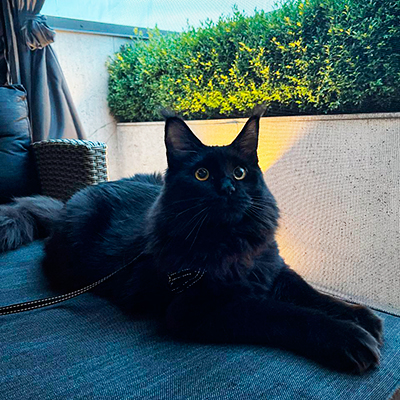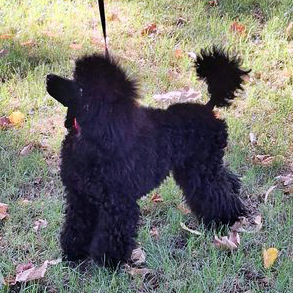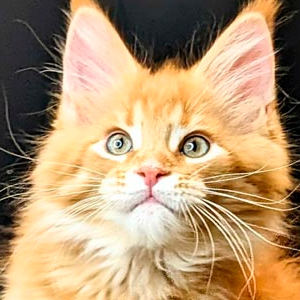Some residents of the US, Canada, and Europe enjoy purchasing pets from Russia, despite the numerous challenges and dangers associated with it nowadays. The primary reason is the significant cost savings, as cats and dogs in Russia are much cheaper. However, you should understand that buying a cat or dog from Russia is akin to playing Russian roulette. Here’s why.
Rampant Scams: Fraudsters and Dishonest Breeders in the Russian Pet Market
When browsing classified websites in Russia, you will encounter numerous scammers who are difficult to distinguish from legitimate breeders. These fraudsters often present stolen certificates from real catteries to appear legitimate. Moreover, many official catteries in Russia do not have websites where you can verify their credentials.
Even within the realm of official breeders, there are widespread issues with falsified metrics and pedigrees. Some animals may have the proper breeding credentials, while others, unsuitable for breeding, are still used to maximize profit. This practice is not adequately regulated in Russia. Additionally, some club officials are known to issue fake documents for bribes.
The situation is even worse on the black market, where individuals operate without registering as official breeders. Here, fraud is rampant. You might pay a deposit for a kitten or puppy that never arrives. Often, the animals sent are not the ones you saw online.
These are the main points highlighting the risks, but there are even more dangers lurking. The lack of proper regulation and oversight in Russia makes buying a pet from there a gamble, one where you risk losing your money and receiving an unhealthy or entirely different animal.
Lack of Legal Recourse: International Laws Won’t Protect Your Interests
Another significant risk of buying pets from Russia is the lack of legal recourse available if things go wrong. Currently, international laws are often not upheld in Russia, making it nearly impossible for individuals from Europe or the US to seek justice through courts, police, or other legal avenues.
This issue extends beyond cases of outright fraud. Even when purchasing from a registered cattery, buyers are not safe. A typical example recently described in a closed professional group on social media highlights this risk. A breeder bought a sick animal from a Russian cattery. Not only did the Russian breeder refuse to compensate for the damages, but when the buyer publicly exposed the breeder, the breeder threatened to annul the pedigrees of the sold cats in retaliation. The breeder’s response was telling:

“Good luck! Just leave me alone! I will make sure you won’t register a single litter from my cats, and I will handle this immediately!!! You seem to have forgotten that we are Russians)) Remember this once and for all!”
Naturally, aside from the uproar on social media, the buyer could do nothing more.
Russia has withdrawn from or refused to adhere to many international legal conventions, further complicating any attempts to resolve disputes. This means that if you are scammed or if your rights are violated by a Russian seller, you will likely have no way to enforce your rights or recover your losses.
This disregard for international law and lack of accountability makes purchasing a pet from Russia a perilous endeavor. You are not only risking your money but also your peace of mind, knowing that there is little to no protection or recourse available to you.
Rabies Concerns: Russia’s Alarming Animal Health Issues
For a long time, Russia managed to conceal the true situation regarding rabies in the country. Officials did not publicize statistics on how many animals and people were affected by this disease. However, the truth eventually came to light. Since September 2024, European Union legislation has required not only that animals entering the EU be vaccinated against rabies but also that they have a rabies antibody titer test certificate. Additionally, a quarantine period of three months from the date of the blood sample collection is mandatory. This means that animals younger than 6-7 months cannot be legally exported to the EU.
Russian breeders and couriers often do not comply with these requirements. Due to widespread corruption in the country, it is relatively easy to obtain fake documents without undergoing any tests. Russian couriers are already offering these services.
As for the importation of animals into the United States, there is currently no such requirement. As a result, there is no assurance of the rabies status of animals imported from Russia.
Inferior Quality and Poor Veterinary Care: The Reality of Pets from Russia
Purebred pets from Russia are cheaper not only because it is an economically challenged country but also because the quality of these animals is often significantly lower than those in the US and Europe. While American and European breeders strive to enhance the competitiveness of their animals and provide health guarantees for at least one year, Russian breeders offer no such assurances.
Additionally, Russian breeders do not always have access to quality veterinary medicines and feeds. Vaccines and feeds from the US and Europe reach major cities through circumvented sanctions, though there is no guarantee that these are not counterfeit. The situation is even worse in rural areas of Russia, from where the cheapest kittens and puppies often come, attracting European and American buyers.
Regarding state regulations, there is no control over the quality of pet care in Russia. Even top breeders in major cities sometimes cut costs by feeding their kittens low-quality food, bathing them in dishwashing detergents, and engaging in similar harmful practices. This was happening even before the sanctions when access to good products was available. Imagine what is happening now! Consider how much you might save by buying an animal in Russia, only to spend three times as much on veterinary care to treat it later. Is that really worth it?
Lengthy, Exhausting, and Expensive Transport from Russia to Europe and the US
Shipping animals from Russia to European countries or the US is a long, exhausting, and costly process. Flights are only available from major cities, which means that animals from other areas must first be transported to these major hubs (of which there are only a few in the entire country) before they can be put on a plane. This means that the animals will be in transit for several days.
Afterward, they will board local airline flights, which are not known for their gentle handling of animals. Recent scandals have highlighted cases where carriers with cats were thrown by cargo handlers, resulting in the death of the animals. No compensation was paid to the affected owners. Furthermore, reputable airlines that maintain high standards for animal transport do not operate with Russia.
Economic Destabilization: How Buying a Pet from Russia Affects Your Country
How is the destabilization of your country connected to buying a kitten or puppy from Russia? The connection is, in fact, direct. Russia is at war with Ukraine, and this conflict destabilizes not only these countries but also the entire world, including your nation. This is especially true in terms of economic conditions and rising prices. When you send your dollars or euros to Russia, you are effectively investing in the economy of a country at war. Even if a breeder does not pay taxes, they still spend this money within the Russian economy, purchasing goods and services from those who do. The taxes collected from these transactions help fund the continuation of the war: currently, Russia is allocating the majority of its finances towards the war, cutting back on all other expenditures.
Your indirect participation in financing the war enhances Russia’s military capabilities, prolongs the conflict, and ultimately leads to higher costs for even the most basic necessities in your country. So, perhaps it would be better to support Ukrainian breeders with your purchase, as they are the victims of aggression, not the aggressors?
Moral Considerations
It is reasonable that during a war, when Russia acts as an aggressor against the entire democratic world, most people choose to avoid buying not only animals but any products from there. You might think that breeders do not bear collective responsibility for what is happening. Collectively, they do not; you are right. Each person bears their individual responsibility. Among Russian breeders, the majority are supporters of Putin, backing the war and secretly insulting their buyers from the US and Europe. Although they may tell you to your face that they are against the war, the reality is different. So, the main question is: do you want to share moral responsibility with them by supporting the aggressor?
As a conclusion, here is a letter from a Ukrainian breeder named Olga:
“I am Ukrainian. I have a cattery of Scottish cats, and I lived in the Kherson region (left side of the Dnipro river) before the war. My house was destroyed; a missile hit the roof. My brother was taken by Russian soldiers at night from our house, and until now, we don’t know where he is or if he is still alive… In one moment, everything we had was gone. All I have left is my mom, my daughter, and my cats. I managed to move out of the occupied area and took all my cats with me. I just couldn’t leave my animals, though it was incredibly difficult to evacuate 12 cats… Currently, I am living in Kyiv. I came with nothing except my cats. It’s very difficult for people who have never experienced war to understand the horror we went through. Just imagine for a moment that such a thing happened to you, your family, and your children… And then ask yourself — how is it possible to buy cats from a terrorist country such as Russia?”





















 . It's very friendly with other family members too, lies in laps, and cuddles, but with its person, it's a whole different level
. It's very friendly with other family members too, lies in laps, and cuddles, but with its person, it's a whole different level 













 My husband and I were looking for a black Mittelschnauzer, and we accidentally came across this service, and now we have another family member
My husband and I were looking for a black Mittelschnauzer, and we accidentally came across this service, and now we have another family member  . The expert's communication is top-notch; I still periodically chat and consult with them on some issues. An exceptionally pleasant, intelligent person with a huge heart and love for pets
. The expert's communication is top-notch; I still periodically chat and consult with them on some issues. An exceptionally pleasant, intelligent person with a huge heart and love for pets 









 Super
Super  Merci beaucoup
Merci beaucoup 


 We 100% recommend lapa.shop!
We 100% recommend lapa.shop! 









 ! They helped me along the whole process from reserving the kitten to securing reliable transportation. I definitely recommend them as a reliable place to get your pedigree pet! Keep in mind that payments on the website are in Ukrainian currency so if you pay with euro/dollars, there will be an exchange fee. Other than that, everything is clear and straightforward, I’m very glad I decided to go with lapa.shop!
! They helped me along the whole process from reserving the kitten to securing reliable transportation. I definitely recommend them as a reliable place to get your pedigree pet! Keep in mind that payments on the website are in Ukrainian currency so if you pay with euro/dollars, there will be an exchange fee. Other than that, everything is clear and straightforward, I’m very glad I decided to go with lapa.shop!


















 . Thank you
. Thank you 























 .
.


































